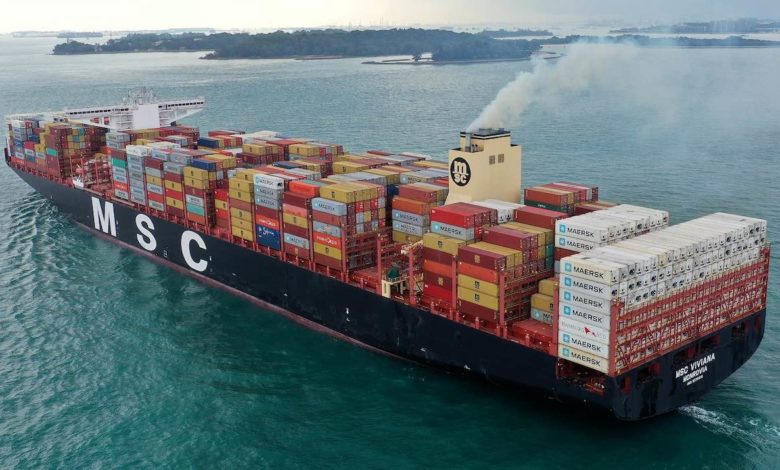MSC trials alternative HFO

Mediterranean Shipping Company (MSC), the world’s second largest containerline, will trial emulsified synthetic heavy fuel oil on its ships this year with a view to rolling out the fuel more widely in the long run.
MSC Shipmanagement has signed an operational trial with Quadrise Fuels International (QFI), and will check out how the alternate fuel called MSAR, as well as another QFI biofuel called bioMSARTM, works on MAN and Wartsila engines, before taking the trial further.
Commenting on this agreement Jason Miles, CEO of QFI, said: “We believe that MSC’s large modern fleet installed with electronic engines and, in some cases, exhaust gas cleaning systems is well positioned to realise the economic and environmental benefits of MSAR and bioMSARTM and we look forward to realising the project and getting the trials underway in 2021.”
MSAR is a low viscosity oil-in-water emulsified synthetic HFO while QFI’s bioMSAR combines conventional MSAR technology and fuel with renewable glycerol to produce an oil-in-water emulsified synthetic HFO with lower emissions, including 20-30% less CO2.
This is not MSC’s first biofuel foray. Since December 2019, MSC has been using biofuels from another supplier with 30% blends for ships bunkering at Europe’s largest port, Rotterdam.
A host of other containerlines have also been looking at biofuels over the last 18 months.
MSC last June started offering clients a new carbon neutral offering. South Pole, headquartered in Switzerland like MSC, has helped create the MSC Carbon Neutral Programme, which supports projects that deliver measurable benefits aligned with the UN Sustainable Development Goals.
MSC’s team of experts help calculate the emissions generated by the volume of cargo moved then clients can select one of the projects, part of the MSC Carbon Neutral Programme, to compensate the unavoidable emissions of the marine and inland transportation of their goods.
MSC has recently joined the Hydrogen Council, a global industry body to foster cross-sector collaboration to accelerate R&D related to clean hydrogen derived fuels and solutions.
“The future of shipping and decarbonisation will rely on strong partnerships from both the perspective of technology collaboration and procurement. There must be a massive injection of energy and capital into R&D efforts to bring alternative fuels and alternative propulsion technologies to the marketplace to decarbonise all industries in the longer term,” Bud Darr, an executive vice president at MSC, commented earlier this month.

A very exciting time for Quadrise, a fuel solution that has existed for quite a while to improve environmental standards.
Regular Msar fuel reduces NOx by ~ 30% and because it’s a micro-emulsion has fcomplete combustion, meaning no soot, black particulate matter.
BioMsar a recent development by the Quadrise Research Facoility, as well as having the above same properties also has 20-30% CO2 reduction by using glycerol.
MSC a forward thinking company who are trialling Msar for the full 4000 hrs for a LONO are taking their responsibilities seriously.
Unlike a lot of companies tied to the untested VLSFO which is an amalgam of toxic muck and is now responsible for the engine failures and wear and tear of engines that are now regularly occurring .
Msar having already been trialled and obtained a partial LONO, does what it says it does. Saves money for the shipping company and improves their environmental footprint.
An exciting time to be sure
Yes, a fuel that was very successful during Maersk trial and halted through no fault of Quadrise.
With MSAR and the new bio variant coming on stream, a great way to reduce pollutants, especially NOx and particulates!